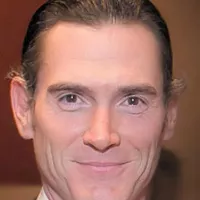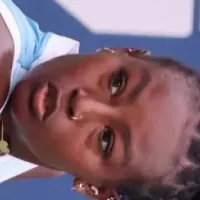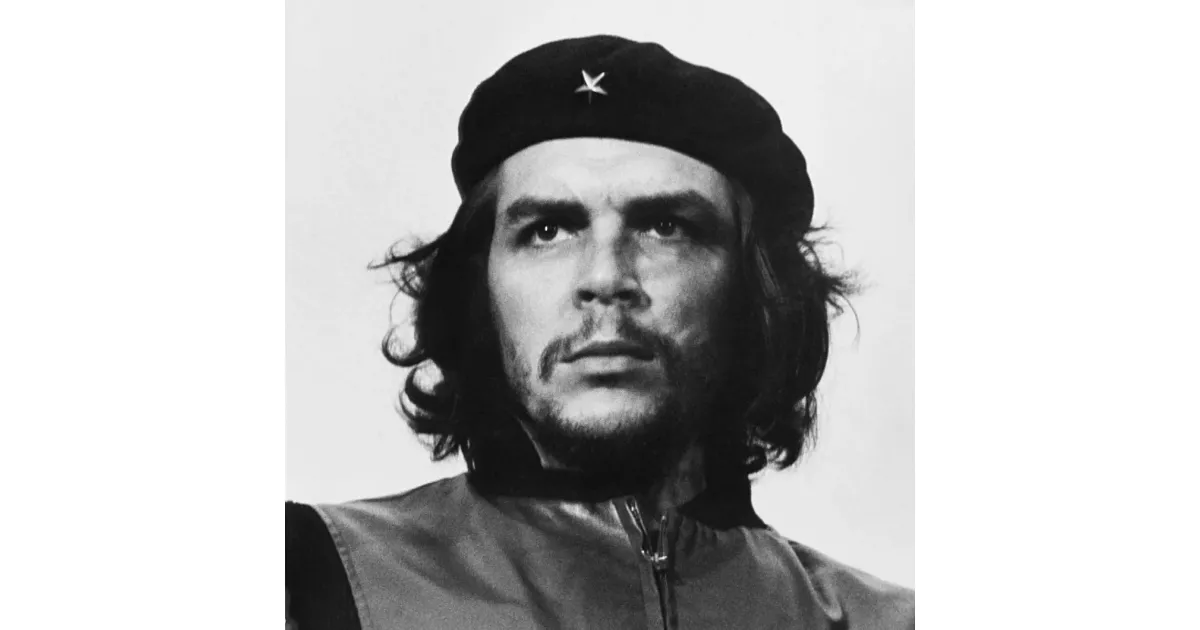Public opinion and media debates around Che Guevara—discover key moments of controversy.
Ernesto "Che" Guevara was a prominent Argentine Marxist revolutionary, physician, and guerrilla leader. He played a key role in the Cuban Revolution and became a significant figure in the Cuban government. Beyond his involvement in Cuba, Guevara sought to spread revolution to other countries, particularly in Africa and South America. His efforts often involved guerrilla warfare and promoting socialist ideologies. Despite his controversial legacy, Guevara remains a globally recognized symbol of rebellion and revolutionary ideals, often seen as a countercultural icon.
January 1959: Guevara becomes commander of La Cabaña Fortress prison
In January 1959, Castro appointed Guevara commander of La Cabaña Fortress prison. He was tasked with purging the Batista army and exacting "revolutionary justice".
January 1959: Public approval of executions
On January 22, 1959, a Universal Newsreel broadcast featured Fidel Castro asking Cubans if they approved of the executions, which they supported with a roaring "¡Sí!" (yes).
January 1959: Execution of Colonel Rojas
On January 7, 1959, Guevara ordered the execution of Colonel Rojas, the chief of police in Santa Clara. The execution was broadcast on Cuban television, becoming one of the first killings ever aired on television.
February 1959: Guevara defends executions
In February 1959, Guevara stated in a letter that the executions by firing squads were a necessity and an imposition of the people of Cuba.
September 1959: Guevara returns to Cuba, land seizures begin
In September 1959, upon Guevara's return to Cuba, it became clear that Fidel Castro's political influence had grown. The government initiated land seizures under the agrarian reform law, offering landowners low-interest "bonds" for compensation, which raised concerns in the United States. Wealthy cattlemen in Camagüey, along with disaffected rebel leader Huber Matos and the anti-communist wing of the 26 July Movement, opposed the land redistributions, denouncing "communist encroachment." Additionally, Dominican dictator Rafael Trujillo offered assistance to the "Anti-Communist Legion of the Caribbean," a multinational force plotting to overthrow Castro's regime during this time in September 1959.
1959: Application of Ley de la Sierra
In 1959, the revolutionary government extended the application of the Ley de la Sierra (Law of the Sierra) to the whole of the republic and to those it considered war criminals. This law included the death penalty for serious crimes.
1959: Critique of agrarian reform law
In a meeting with French economist René Dumont, Guevara blamed the inadequacy of the agrarian reform law enacted by the Cuban government in 1959, which turned large plantations into farm cooperatives or split up land amongst peasants.
March 1960: Explosion of La Coubre and aftermath
On 4 March 1960, two explosions destroyed the French freighter La Coubre in Havana Harbor, killing at least 76 people. Guevara personally assisted victims. Fidel Castro blamed the CIA for this "act of terrorism". A state funeral was held for the victims. At the memorial service, Alberto Korda took the famous photograph of Guevara, now known as Guerrillero Heroico.
1960: Construction of Guanahacabibes labor camp
At some point in 1960, Guevara ordered the construction of the Guanahacabibes camp: a labor camp to "rehabilitate" his employees who had committed infractions at work. Historians have had difficulty characterizing the camp, because it was extra-legal and thus poorly documented.
August 1961: Guevara at economic conference in Uruguay
In August 1961, during an economic conference of the Organization of American States in Punta del Este, Uruguay, Che Guevara sent a note of "gratitude" to United States President John F. Kennedy through Richard N. Goodwin, Deputy Assistant Secretary of State for Inter-American Affairs. Guevara antagonistically attacked the United States' claim of being a "democracy", speaking out against the "persecution" that in his view "drove scientists like Oppenheimer from their posts, deprived the world for years of the marvelous voice of Paul Robeson, and sent the Rosenbergs to their deaths against the protests of a shocked world."
March 1962: Guevara admits failure of economic plan
In March 1962, Guevara admitted in a speech that the economic plan was a failure, specifically stating it was "an absurd plan, disconnected from reality, with absurd goals and imaginary resources."
August 1962: Guevara signs missile agreement with Soviets
On 30 August 1962, Che Guevara traveled to the Soviet Union to sign off on the final agreement regarding the Soviet Union planting nuclear missiles in Cuba. Guevara argued with Khruschev that the missile deal should be made public but Khruschev insisted on secrecy.
October 1962: Cuban Missile Crisis
In October 1962, the Cuban Missile Crisis occurred. Guevara played a key role in bringing Soviet nuclear missiles to Cuba, bringing the world to the brink of nuclear war.
1962: Cuban Missile Crisis
In 1962, Che Guevara played a central role in bringing Soviet nuclear-armed ballistic missiles to Cuba, which preceded the Cuban Missile Crisis.
1963: Sugar production decline and Guevara's resignation
In 1963, Cuba's sugar harvest brought in 3.8 million tons, the lowest in over twenty years. General food production was also down per capita by 40% for the next three years. Castro began to emphasize sugar production in economic planning, and Guevara resigned from his position as head of the Ministry of Industries.
December 1964: Che Guevara addresses the United Nations
In December 1964, Che Guevara, as head of the Cuban delegation, traveled to New York City and addressed the United Nations. On December 11, 1964, he criticized the UN's inaction against apartheid in South Africa and denounced the United States' policy towards their black population.
February 1965: Last Public Appearance on the International Stage
On February 24, 1965, in Algiers, Algeria, Guevara made his last public appearance on the international stage, delivering a speech at an economic seminar on Afro-Asian solidarity. He criticized socialist countries for complicity with Western exploiters and outlined measures for the communist bloc to defeat imperialism.
June 1965: Castro addresses speculation regarding Guevara's fate
On June 16, 1965, amidst international speculation about Guevara's disappearance, Castro stated that the people would be informed when Guevara himself wished to let them know.
October 1967: Memorandum to President Johnson on Guevara's Death
In October 1967, a declassified memorandum to United States President Lyndon B. Johnson from his National Security Advisor Walt Rostow, characterized the decision to kill Che Guevara as "stupid" but "understandable from a Bolivian standpoint".
1968: Internment of "Anti-Socials" in UMAP Labor Camps
Between 1965 and 1968, Cubans labeled as "anti-socials" who had fallen outside the "new man" concept, were interned in UMAP labor camps.
2007: Release of My Enemy's Enemy
In 2007, the documentary My Enemy's Enemy alleged that Nazi war criminal Klaus Barbie advised and possibly helped the CIA orchestrate Guevara's eventual capture.
Mentioned in this timeline

John F Kennedy JFK was the th U S President...
Sudan officially the Republic of the Sudan is a country...
The Union of Soviet Socialist Republics USSR existed from to...
India officially the Republic of India is a South Asian...
Barbie is a fashion doll created by Ruth Handler and...
Morocco officially the Kingdom of Morocco is a North African...
Trending

10 months ago Alex Bowman Scores Pole at Bristol, Suffers Engine Failure During NASCAR Cup

2 months ago Billy Crudup Speaks About Mary-Louise Parker Breakup and Co-Parenting Relationship
Virginia officially the Commonwealth of Virginia is a state located in the Southeastern and Mid-Atlantic regions of the United States...

2 months ago Alycia Parks vs Tamara Korpatsch in Angers: Preview, Prediction, and Betting Tips
11 months ago CME & Google Cloud Pilot Blockchain for Trading & Asset Tokenization Solutions
3 months ago AMD's Data Center Growth Boosts Optimism, Trillion-Dollar Market Cap Predicted, Analyst Cautions.
Popular

Kid Rock born Robert James Ritchie is an American musician...

Melania Trump a Slovenian-American former model has served as First...

XXXTentacion born Jahseh Dwayne Ricardo Onfroy was a controversial yet...

Thomas Douglas Homan is an American law enforcement officer who...
The Winter Olympic Games a major international multi-sport event held...

Instagram is a photo and video-sharing social networking service owned...
